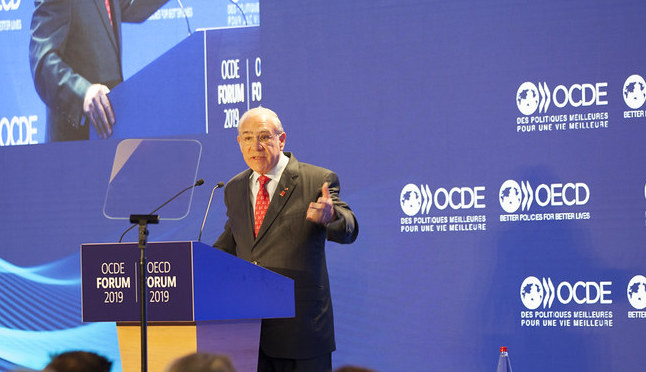
Ahead of this month’s G20 Summit in Japan, the OECD has introduced its roadmap to tax digital companies, the “Program of Work to Develop a Consensus Solution to the Tax Challenges Arising from the Digitalization of the Economy.”
This framework sets the stage for the OECD to rewrite decades of international tax rules and norms to implement a digital tax and to attack American tech companies.
When many Nordic countries and historically low tax countries like Ireland and Luxembourg came out against the European Union’s digital tax proposal, any hope of a unanimous agreement at the Economic and Financial Affairs Council was killed. For many, this was a sign of hope that Europe’s digital tax, which would target mainly American technology companies, was going to be shelved indefinitely.
The OECD program is divided into two “pillars.” In the first , the OECD lays out several proposals that would allocate more taxing rights to the jurisdiction of users in situations where value is created by a business activity through participation in that jurisdiction that is not recognized in the current framework for allocation profits. This includes remote participation, which is the true target of the proposal.
For example, if a company is located in the United States and has advertisements on its website that can be accessed in France, these proposals would allow France to tax the company even though it has no physical presence in France.
The very dominant high tax, high spending European OECD member countries are strongly pushing for this change, as they need massive tax revenue increases to fund their bloated welfare systems and of course it is easier to tax companies or people who can’t vote for or against you. To illustrate the absurdity of this proposal and the dramatic effects on the principle of value creation and the permanent establishment rule, let’s look at French wine.
Under the old rules, the value of this product is created in France, where the winemaker puts all his knowledge, effort and experience in making the best wine possible. Under the new rules, the value will be created when the consumer drinks the wine.
The OECD proposal develops new concepts of “remote taxable presence” and “taxable income sourced in” (a jurisdiction) that drastically redefine the decades-old concept of nexus to now not require a physical presence.
A company based in Ireland but that is accessed in EU countries would now potentially be subject to 28 different taxing authorities. This will surely drive up compliance costs and open the door for each country seeking to get its “fair share” of tax revenue. The OECD should operate within the current legal framework, not rewriting the rules to fit an agenda.
Now it is of the utmost importance for countries opposing a Digital Services Tax, dramatic changes to the international tax system and in favor of tax competition to make their voices heard louder than ever, and in the U.S., the Trump administration must further step up its opposition.

